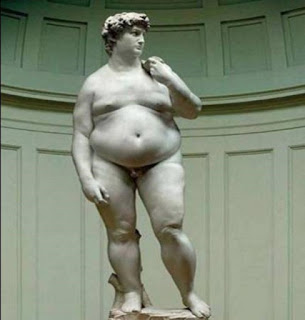No, I probably won’t, but I suspect that expression might soon need to be protected under the Endangered Species Act. It surely must be close to extinction. Extremely popular as recently as our younger days, attitudes have changed so much that people rarely say, or even think, these days, you’ll never know … whatever.
Not only people, but computer systems, know more about us than we do ourselves. King Soopers knows what I eat, Argonaut knows what I drink, Amazon knows what I read. A part of us seems to resent and fear this, yet we relentlessly feed the world endless information.
We shout everything from the rooftops. We tell everyone everything, from inane trivia to what would once have been deep dark secrets.
Take Facebook for instance. (Please, take it! I don’t want it.) So many people telling me so much more than I could ever need, or want, to know. Am I supposed to be enthralled by the final success of some friend of a friend’s grandchild’s potty training? Or someone whose name means nothing to me proclaiming that he, without fail, flosses his teeth six times every day? Or the myriad of lunatic responses to this claim from people I don’t know and don’t want to know?
I’d like to say that I hate Facebook, but in all honesty I simply stay away from it so I’m not involved enough to hate it. I do, however, regret the way in which it has created impersonal communication from the personal.
Once upon a time – and not so very long ago – cousin Fred would send a postcard when he visited New York. It would have the same tired photo of the Empire State Building on the front, and some version of wish you were here on the back. Nevertheless, how nice of him, you would say, to think of me. It was personal. It made you feel good.
Now, you look at Fred’s photo-journal on Facebook, detailing his trip to Bangkok. He recounts every event of every day, down to what he ate for dinner. You can imagine his trip much more vividly then you did from the old postcards, but what happened to that warm fuzzy you used to get from them? What happened to the personal touch? What happened to that oh how nice of you to think of me feeling? I haven’t a clue whether he ever gave me a thought or not. He sent this report out into the ether to be read by anyone who cared to do so. I would really get more out of a boring photo and a banal message; at least it was for ME.
A while back I heard via a mutual friend that a good friend of mine had just returned from New Zealand.
‘I didn’t even know she’d gone to New Zealand!’ I wailed.
‘It’s all been on Facebook,’ she replied, looking pitying and puzzled as if I’d just told her I couldn’t read.
A couple of weeks ago, a group of old lesbians Betsy and I belong to were joined for lunch by a few teenagers who shared with us their experiences with being …. um …. and here I shall begin to flounder because I am not too sure what they would consider the politically correct terminology. My apologies to any of you wonderful young people who happen ever to read this, which I think highly unlikely. I think their version of the alphabet soup was LGBTQIA+, the QIA being questioning, intersex, and asexual. What an education these kids are. They talk with assurance about identifying as gender-queer, gender-fluid, non-binary, and half the time I’m not sure even what they’re saying. It’s another language. And here we were, many of us in this room, when we were that age, ignorant of even one word to describe what we knew, at some level, ourselves to be. I recall that huge hurdle, as it appeared at the time, we had to leap in order simply to inform others that we were attracted to those of the same sex, or that we were trapped in the wrong body. Can you even begin to imagine trying to explain to your parents that you are never sure, at any given moment, whether you will feel that you are female or male, or to which sex you may feel attracted. Or that you chose not to identify as any gender. You just are.
For some of them, their preferred pronoun is ‘they’ rather than he or she, which is vaguely possible in the English language but when I try it I find it very confusing.
It was all starting to make my head hurt.
Don’t get me wrong though, I have every admiration for these young people: out to the world, apologizing for nothing, completely proactive on their own behalf. I’m not foolish enough to think it’s easy for them, but none of them is ever going to think, in some secret, inner, self, you’ll never know ….
Everyone knows, and I bet they’re all out, loud and proud, on Facebook.
Perhaps, if I used Facebook, I would be more familiar with the the language of today’s LGBTQIA etc. youth, though I am not ashamed to admit my deplorable ignorance face to face.
Maybe I just have to accept that if I am to keep up with what is happening in the world in general, and with those nearest and dearest, I shall have to resort to Facebook. But I’d still rather receive a postcard.
© November 2015
About the Author
I was born and raised in England. After graduation from college there, I moved to the U.S. and, having discovered Colorado, never left. I have lived in the Denver-Boulder area since 1965, working for 30 years at IBM. I married, raised four stepchildren, then got divorced after finally, in my forties, accepting myself as a lesbian. I have been with my wonderful partner Betsy for thirty years. We have been married since 2013.
















